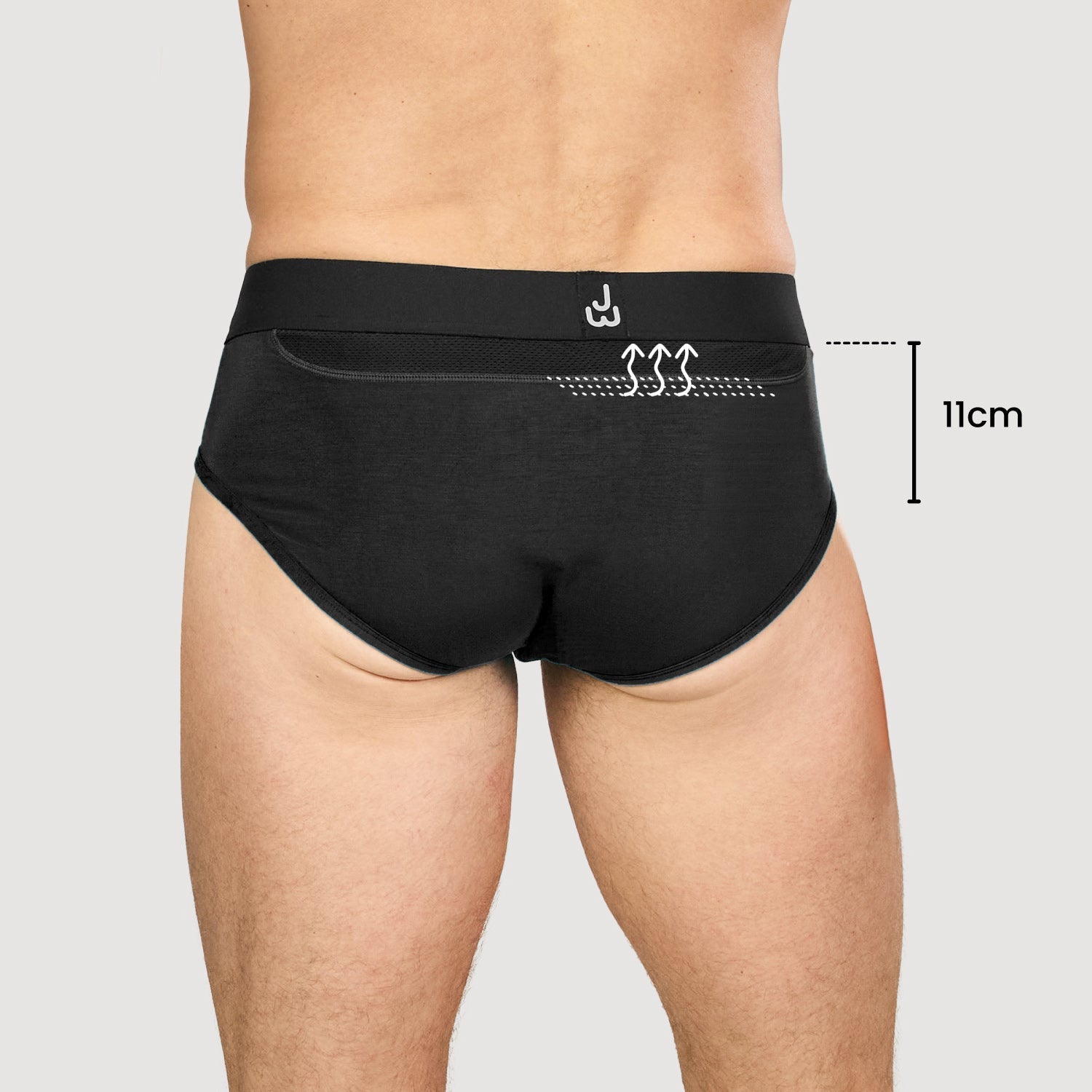
In a world marked by stereotypes and often unattainable standards of beauty and health, the concept of body positivity stands as a vital beacon of self-acceptance and emotional wellbeing. We think that this journey toward a positive body image should have no gender bounds. Body image struggles have significant implications for the mental health of men. Let's embark on a comprehensive exploration of body positivity, delve into the practice of self-care and why it's good for men too, and understand how these principles can significantly improve overall health and well-being.
The Power of Body Positivity
In an era inundated with images and ideals of what a 'perfect' body should be, body positivity emerges as a powerful and inclusive movement. It challenges conventional beauty standards and emphasizes that all bodies are valuable, regardless of size, shape, or appearance. This movement is not confined to one gender; it is a universal call to embrace ourselves as we are and foster a positive body image.
Although body positivity is a movement for all, due to toxic standards upheld for men in today's society, it is often harder for men to express these struggles than it is for women. However, all genders are held up to scrutiny in society around how their bodies appear. We think breaking down the taboo of speaking about body image issues for men is a radical step in the right direction.
And the statistics highlight a concerning reality: a substantial number of men grapple with depression. This underscores the critical role that body positivity can play in promoting mental health. By cultivating a positive body image, individuals can experience increased self-esteem and emotional wellbeing, reducing these difficult mental health issues.
The Essence of Self-Care
To embark on this journey toward body positivity and improved mental health, it's essential to grasp the concept of self-care. Self-care is not a self-indulgent luxury; it's a fundamental practice for maintaining mental well-being. It encompasses a range of intentional actions and choices to nurture a positive relationship with oneself.
At its core, self-care encourages us to feel positive about ourselves, irrespective of societal standards or external pressures. It is about recognizing our intrinsic worth and fostering self-compassion. By engaging in self-care practices, individuals can enhance their emotional resilience and overall quality of life.
The Seven Pillars of Self-Care
Making an effort for yourself has been defined repeatedly and opinions vary. However, it is generally split into seven key pillars. Self-care can be understood through this framework, each representing a distinct aspect of our lives:
Physical: This pillar focuses on maintaining our physical health through activities such as exercise, nutritious eating, and adequate sleep. It's about feeling positive about our bodies and providing them with the care they deserve. This area can be a minefield in itself because of developing eating disorders or over-exercising behaviours, so there is a balance to be found in taking care of one's self whilst not impacting your mental wellbeing with it.
Emotional: This centers on recognising and processing our feelings. It encourages us to acknowledge our emotions without judgment, fostering emotional intelligence and self-acceptance. For some, this may mean asking 'Why do I feel this emotion, what is causing it?' and for others, it may mean taking some time in therapy, journalling or practicing other techniques to explore their emotional worlds.
Mental: Mental or shadow work involves stimulating our minds, whether through reading, learning, or engaging in creative pursuits. It contributes to mental clarity and positive self-perception. Feeling stimulated in this way is essential to wellbeing and fulfillment.
Social: Social connections are integral to our well-being. Nurturing positive relationships, setting boundaries, and seeking support when needed are vital aspects of social self-care.
Spiritual: Spiritual self-care does not necessarily imply religious practices. It's about finding meaning and purpose in life, exploring personal values, and connecting with a sense of spirituality. Connecting with this part of yourself can be very beneficial to your wellbeing.
Environmental: Our surroundings have a significant impact on our mental health. This pillar encourages creating a harmonious environment that promotes emotional well-being. This means we are also affected a lot by our environment. If you live in a busy, noisy city like we do, finding ways to bring nature in is proven to stimulate your wellbeing. Whether that means taking a break to go to the park for some sunlight, or getting a house plant to take care of.
Professional: Our work lives are integral to our overall well-being. Afterall, we spend most of our lifetime at work. Professional self-care involves setting boundaries, managing stress, and finding fulfillment in our careers.
By considering these seven pillars in our lives, we can create a comprehensive routine that supports our mental health and takes some of the brain's weight. It's essential to remember that it is not about striving for perfection but about making progress and nurturing self-compassion. You may also notice going through this list where you have areas to improve. Feeling unhappy at work? That will influence other areas of your life too.
Practical Self-Care Skills
Now that we understand the pillars let's explore practical skills and practices that can enhance our self-care routines:
Mindfulness Meditation: This involves staying present in the moment, reducing stress, and promoting emotional well-being.
Journaling: Writing down our thoughts and feelings can be a powerful tool for emotional self-care, helping us process emotions and gain insight into our mental state.
Physical Activity: Regular exercise is a cornerstone of fighting those negative thoughts. It releases endorphins, reduces stress, and fosters a positive body image.
Healthy Eating: Nourishing our bodies with nutritious foods is like fueling a car with premium gas. It's about feeling positive about the choices we make regarding our diet.
Seeking Support: Social self-care includes seeking support from friends, family, or mental health professionals when needed. It's an essential aspect of emotional well-being.
Creating a Safe Space: Environmental care involves creating a physical environment that feels safe and nurturing.
Setting Boundaries: Setting clear boundaries in our personal and professional lives is a form of self-care that protects our emotions.
Mindful Breathing: Practicing deep, mindful breathing can be a quick and effective way to reduce stress and enhance calmness.
Engaging in Hobbies: Pursuing hobbies and interests outside of work contributes to mental work. It's about finding activities that bring joy and fulfilment.
The Role of Social Media in Self-Care
In today's digital age, platforms like Instagram play a significant role in our lives. They can either contribute to positive body image and mental health or exacerbate negative stereotypes. Curating our online experiences by following accounts that promote body positivity and mental health can create a supportive digital environment that aligns with our self-care goals.
Addressing Depression with Self-Care
One critical question often asked is whether all these skills can help with depression. The answer is a resounding yes. Self-care practices, when integrated into one's routine, can play a substantial role in managing depression. They provide individuals with the tools and coping strategies to navigate the challenges that depression presents.
Conclusion: Embrace the Journey
In conclusion, body positivity and self-care are integral to promoting mental and emotional health. By understanding and practicing self-care, individuals can embark on a journey of self-discovery and self-compassion. It's an essential voyage that improves self-esteem, emotional resilience, and overall well-being. In an era where societal pressures and stereotypes abound, the practice of self-care and the principles of body positivity shine as guiding stars, leading us toward a healthier, happier future.
With the compass of self-care in hand, we navigate the seas of life, embracing our unique bodies and fostering a positive body image. This journey is not about perfection but about progress, and it starts with one step toward self-love and acceptance.



